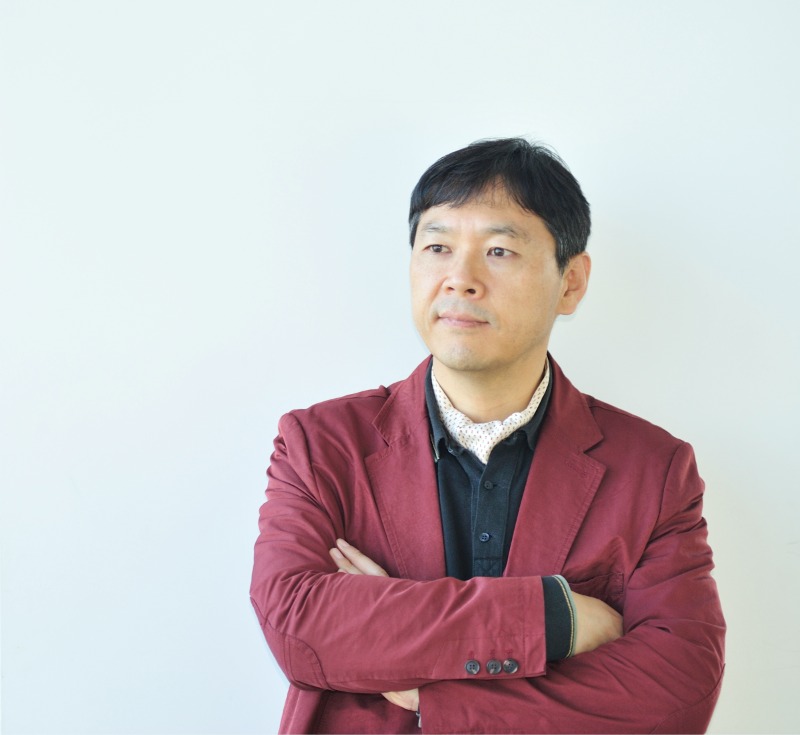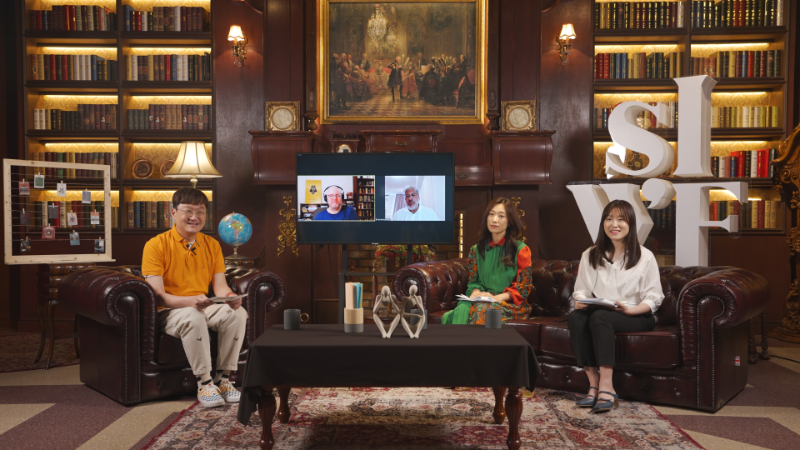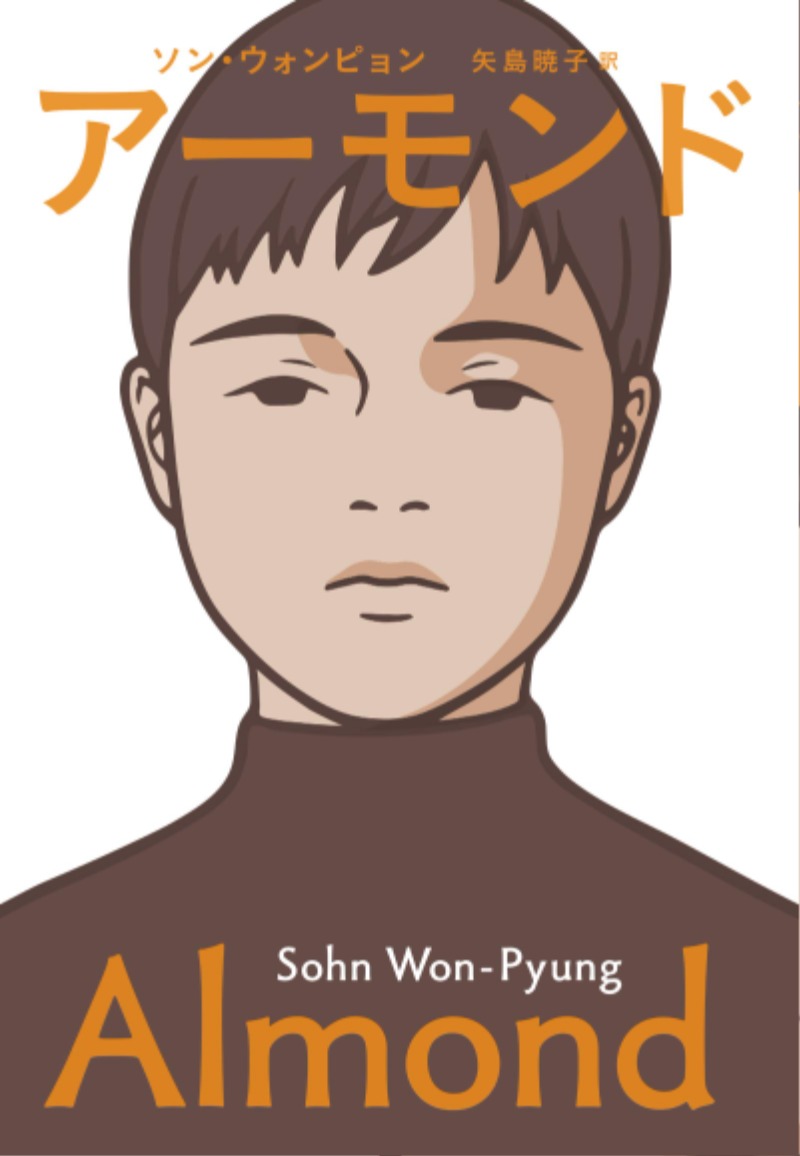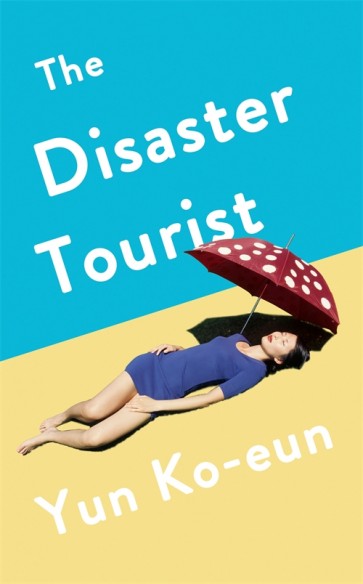 [Interview]President Kwak Hyo-hwan: The Literature Translation Institute of
Korea (LTI Korea) Gets Ready to Leap Forward
[Interview]President Kwak Hyo-hwan: The Literature Translation Institute of
Korea (LTI Korea) Gets Ready to Leap Forward

1. Please send a word of greeting to Korean literature fans at home
and abroad.
As the Literature Translation Institute of Korea (LTI Korea)
commemorates the 25th anniversary of its founding, I feel both honor
and a grave sense of responsibility in becoming president of the
institute. About five months have passed since I took office, and I
believe LTI Korea will be able to leap even further forward as my
career experience as a poet, a researcher of literature, and an arts
administrator joins forces with the expertise and communication skills
of LTI Korea executives and staff members.
2. Upon taking office as president last May, you said you would
open a “chapter of Korean literature as world literature or as
literature read by the world.” Could you elaborate on this?
I would like to go beyond the notion of “globalizing” or promoting
Korean literature overseas by confidently establishing it as a member
of world literature.
Literature forms the origin and essence of
all artistic and cultural content as well as the topographic map of
life in an era or for a group, and therefore, it can wholly and
laterally convey the culture of one community to another. Korean
literature embodies this value in varied, dynamic ways and LTI Korea
plays a pivotal role in helping it take root as a form of literature
read by world citizens. Franz Kafka once said, “A book must be the axe
for the frozen sea within us.” I think Korean literature can assume
this role.

The 2021 Seoul International Writers’ Festival (Writers in
Conversation: Yun Ko-eun and Lee Miye)
3. Korean literature seems to have made vigorous headway overseas in
the past few years. LTI Korea must have played a considerable part
in this. How has LTI Korea supported Korean literature’s entry into
the global arena?
LTI Korea supports the translation and publication of Korean
literature, publicizes it to overseas readers, and facilitates
international literary exchange and educational training programs for
professional translators. The institute also enhances the
accessibility of Korean literature to readers in various language
areas by distributing translation and publication support to
publishers who purchase copyrights of Korean literary works and by
helping noted publishers produce series on Korean culture globally. By
participating in or being the guest of honor at international book
festivals, campaigning for literary magazines around the world to
publish special editions on Korean literature, and holding the Seoul
International Writers’ Festival, LTI Korea has expanded opportunities
for writers, translators, publishers, researchers, and readers
everywhere to encounter Korean literature. It makes Korean literature
accessible to non-Korean readers by producing PR materials using
Korean literature-based original content and new media such as audio
books, e-books and book trailers of Korean literary works published
abroad. Last but not least, the LTI Korea Translation Academy is
building a solid foundation for the systematic global introduction of
Korean literature by discovering and training future translators of
Korean literature around the world.

Sohn Won-pyung’s Almond, which won the Japan Booksellers' Award in the
translated fiction category in 2020

Yun Ko-eun’s The Disaster Tourist, which won the Dagger Award in the
Translation Dagger category in 2021
4. The most important role of the Translation Academy you just
mentioned must be achieving high quality translation. Could you
elaborate on its role?
Translation is not the simple rendering of words from one language
into another, but the transfer of one culture to another and the
movement from one epistemic space to another. When this transfer is
successful, a translation becomes the object of epistemic interest and
results in impact and acceptance—the LTI and the Daesan Foundation
have long exerted great efforts to these ends. The translation of
Korean literature has achieved splendid growth and development through
three phases. It began mostly as the task of Korean translators well
versed in foreign languages, a trend that lasted until the early
1990s. Then, until the 2010s, it was the joint effort of Korean
translators skilled at foreign languages and non-Koreans with a
comprehensive understanding of the Korean language and culture. Since
then and through today, Korean literary works are mostly translated by
native speakers of foreign languages who are good at Korean. Excellent
translations started to come out in the second phase, as Korean and
non-Korean translators started to work together. In recent years,
native speakers of foreign languages who have studied Korean language
and literature, including second-generation and third-generation
Korean immigrants in other countries, have begun to translate Korean
literature in great numbers, raising the quality of translation and
the number of translators, earning many international literary prizes,
and drawing keen attention from mass media abroad. The demand for
excellent translators will further increase in the days ahead in order
to bring not only literature but many other Korean cultural works such
as webtoons, K- dramas, and movies to the center of world culture in
the wake of Hallyu. LTI Korea’s main role is to discover competent
translators, provide them with systematic education and training, and
support their continued work in related fields. To achieve this goal,
we plan to enhance the Translation Academy’s educational scope to that
of a graduate university.
5. What literary works have been introduced overseas with LTI Korea
support, and which were particularly received well by readers
abroad?
As of the end of last year, a total of 1,511 works in 40 languages
have been introduced around the world over 25 years, and even more
will be published in the coming days. A yearly average of 200 requests
for LTI Korea support for the translation and publication of Korean
works are filed by publishers around the world who have signed
contracts for copyright purchases. This number is also likely to
increase. In the 1990s, works by Yi Chong-jun and Yi Mun-yol emerged
on top of the translation list, and in the 2000s, works by Ko Un, Lee
Seung-u, and Shin Kyung-sook rose to the top as well. In the 2010s,
before and after Han Kang won the Man Booker International Prize for
fiction, more and younger writers from diverse genres received small
and large literary prizes, translation awards, and recognition from
international media; these include Kim Young-ha, Jeong You-jeong, Cho
Nam-joo, Pyun Hye-young, Kim Yeonsu, Kim Hyesoon, Yun Ko-eun, Kim
Yi-deum, and Chung Serang.
6. As you said earlier, LTI Korea celebrates its 25th anniversary
this year. Today, where do you think the institute is headed? Do you
have any specific goals or tasks in mind?
Korean literature has gained global attention as “K-literature” or
“literary Hallyu.” Based on its past 25 years of achievement, LTI
Korea is preparing to leap into the next 25 years. At the moment, we
are in the process of working out a new identity and direction for the
institute, with a corresponding new vision and tasks. Among these, the
most major are the construction and operation of a global platform for
Korean literature, including a lasting platform for Korean literature
copyright transactions; the establishment of a graduate university
specializing in translation; the continued support for translation of
Korean-language content and the education and training of translators;
and the development and implementation of Korean literature export
strategies customized to match the varying degrees of receptiveness in
different countries and regions. Pursuing these goals and tasks, LTI
Korea will strive to enhance its expertise and competitiveness while
keeping its finger on the pulse of the changing cultural environment
and remaining steadfastly loyal to its fundamental goal to introduce
Korean literature and culture abroad.
▲ LTI Korea Website
http://www.ltikorea.or.kr
▲ President Kwak Hyo-hwan
- Former managing director, Daesan Foundation, 2015–2021
- Member, Literature Promotion Policy Committee, Ministry of Culture,
Sports and Tourism
- Poetry Collections: The Indio Woman (2006), The House Not Found on a
Map (2010), The Frame of Sorrow (2014), You Are (2018)
- Research Papers: “A Study on Overseas Introduction of Korean
Literature” (1998), “The Current Status and Tasks of Overseas
Introduction of Korean Literature” (2002), “Looking into Asian
Cultural Contents: Current Status and Possibilities” (2009), “The
Globalizing Experience and Direction in Korean Literary Contents Since
2000” (2011)
- Awards: The 30th Kim Daljin Literary Prize for Poetry (2019), the
25th Pyeon-un Literature Award (2015), the 14th Yushim Literature
Prize for Poetry (2014), the 11th Aeji Literary Award (2013)
 KOREA FOUNDATION
KOREA FOUNDATION newsletter
newsletter










